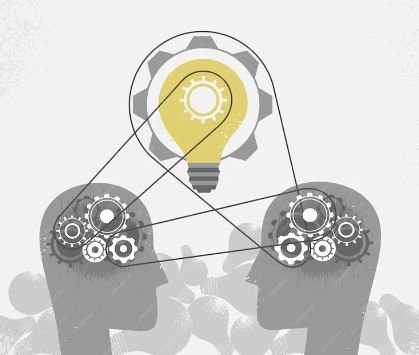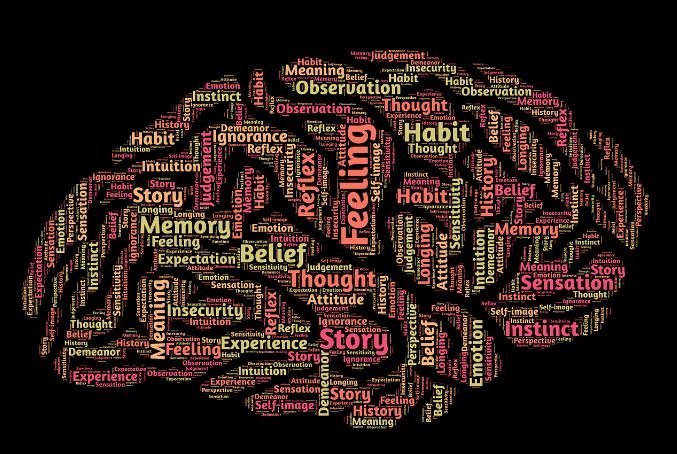Intelligence has always been a fascinating subject for researchers and psychologists. The quest to understand the nature of intelligence and how it influences human cognition has led to the development of various theories. One such theory that has gained widespread recognition is the Two Factor Theory of Intelligence.
Proposed by Charles Spearman, this theory explores two distinct factors contributing to an individual’s cognitive abilities. In this article, we will delve deeper into the background of the theory, its components, controversies surrounding it, and its applications in the field of psychology.
The Background of the Theory
Before we delve into the details of the Two Factor Theory of Intelligence, it is essential to understand its historical context. A British psychologist, Spearman, introduced this theory in the early 20th century. He was influenced by the works of earlier psychologists, such as Francis Galton and Alfred Binet, who laid the foundation for the study of intelligence. Spearman sought to build upon their research and develop a comprehensive framework to explain the nature of intelligence.
Understanding Spearman’s Two Factor Theory of Intelligence
Spearman’s Two Factor Theory of Intelligence proposes that intelligence comprises two distinct factors: general intelligence (g) and specific abilities (s). According to Spearman, general intelligence represents the overall cognitive ability of an individual, which is responsible for performing mental tasks across various domains. On the other hand, specific abilities refer to the skills and knowledge specific to a particular task or domain.
The Components of Intelligence According to Spearman
To further understand the Two Factor Theory, examining the intelligence components proposed by Spearman is crucial. General intelligence (g) is the core factor underlying all cognitive tasks. It represents an individual’s intellectual capacity and influences performance across different domains. On the other hand, specific abilities (s) are task-specific skills and knowledge that contribute to performance in a particular area.
Spearman believed that general intelligence and specific abilities determine an individual’s cognitive performance. While general intelligence provides a foundation for overall cognitive skills, specific abilities come into play when performing tasks requiring specialized knowledge or skills.

The Role of General Intelligence (g) in Two Factor Theory of Intelligence
General intelligence, denoted as g, is a fundamental concept in the Two Factor Theory of Intelligence. It is considered the core factor influencing an individual’s cognitive abilities across various domains. Spearman argued that g is responsible for the shared variance among mental tasks. In other words, it represents the common underlying factor contributing to an individual’s performance in different cognitive tasks.
The role of general intelligence can be seen in various aspects of human cognition. It is associated with reasoning, problem-solving, memory, and other cognitive processes. Individuals with higher levels of general intelligence tend to perform better across various tasks, while those with lower levels may struggle in multiple domains.
The Role of Specific Abilities (s) in Two Factor Theory
While general intelligence provides a foundation for cognitive abilities, specific abilities (s) play a crucial role in task-specific performance. These abilities are specific to a particular domain or task and unrelated to general intelligence. For example, someone may possess high general intelligence but lack specific skills in music or sports.
Spearman’s Two Factor Theory acknowledges the importance of specific abilities in determining an individual’s performance in specific tasks. These abilities can be developed through learning and experience in a particular domain. For instance, a person who has received extensive training in mathematics may possess specific skills that allow them to excel in mathematical tasks.
Criticisms and Controversies Surrounding the Two Factor Theory
Like any scientific theory, the Two Factor Theory of Intelligence has faced criticisms and controversies over the years. One major criticism is the oversimplification of intelligence into just two factors. Critics argue that intelligence is a complex construct that just two dimensions cannot fully explain. They suggest that additional factors or dimensions may contribute to cognitive abilities.
Another controversy surrounding the theory is the debate over the heritability of intelligence. While Spearman’s theory focused on individual differences in intelligence, some researchers argue that genetic factors play a significant role in determining cognitive abilities. This debate raises questions about the extent to which environmental factors versus inborn factors can influence intelligence.
Other Theories of Intelligence and How They Compare
The Two Factor Theory of Intelligence is just one of several theories attempting to explain human intelligence’s nature. One prominent alternative is Howard Gardner’s Theory of Multiple Intelligences, which proposes multiple independent types of intelligence. Gardner’s theory expands the concept of intelligence beyond cognitive abilities to include interpersonal skills, musical talents, and bodily-kinesthetic abilities.
Another influential theory is Robert Sternberg’s Triarchic Theory of Intelligence, which suggests that intelligence comprises three distinct aspects: analytical, creative, and practical intelligence. This theory emphasizes the importance of problem-solving skills, adaptability, and the ability to apply knowledge in real-world contexts.

Applications and Implications of Two Factor Theory
The Two Factor Theory of Intelligence has significant implications in various domains, including education, psychology, and human resources. In education, understanding the distinction between general intelligence and specific abilities can help educators tailor instructional strategies to meet the diverse needs of students. It also provides insights into identifying and nurturing students’ talents and strengths.
In psychology, the Two Factor Theory informs the measurement and assessment of intelligence. Intelligence tests, such as the Wechsler Adult Intelligence Scale (WAIS), often incorporate measures of both general intelligence and specific abilities to provide a comprehensive profile of an individual’s cognitive skills.
The theory has practical implications for recruitment and selection processes in human resources. Employers can use intelligence tests to assess candidates’ general intelligence and specific abilities relevant to the job requirements. This can help identify individuals likely to excel in particular roles or tasks.
Conclusion
The Two Factor Theory of Intelligence provides a valuable framework for understanding the nature of human intelligence. By distinguishing between general intelligence and specific abilities, this theory offers insights into how cognitive skills are structured and influence various aspects of human cognition. While the theory has faced criticisms and controversies, it remains a significant contribution to psychology.


